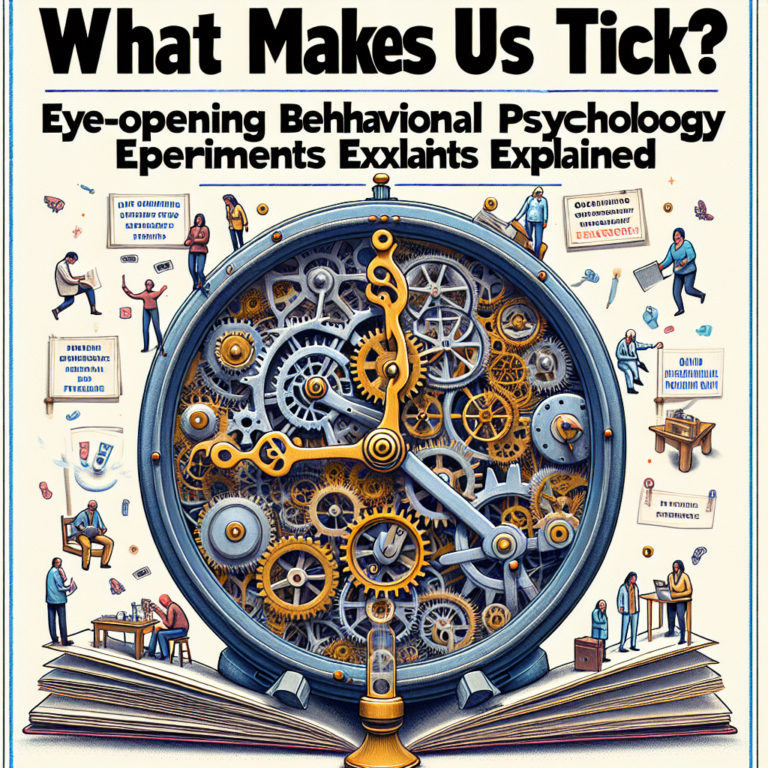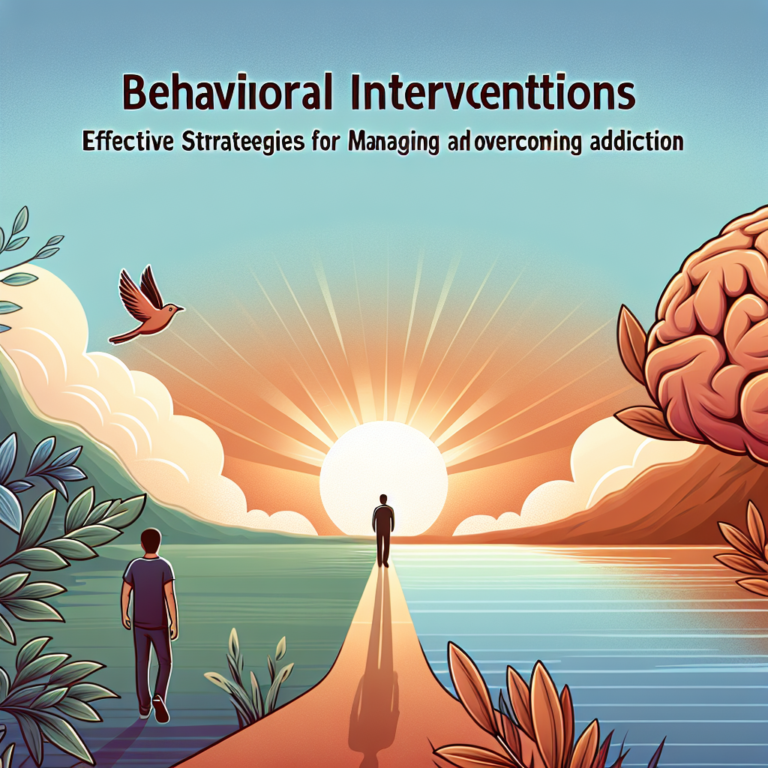Navigating Schizophrenia: Comprehensive Treatment Options You Need to Know
Introduction
Schizophrenia is a complex mental health disorder that affects how a person thinks, feels, and behaves. Despite being a prevalent condition—affecting approximately 1% of the population worldwide—it remains shrouded in stigma and misunderstanding. Those diagnosed often encounter challenges not only related to the disorder itself but also related to accessing effective treatment. This article, Navigating Schizophrenia: Comprehensive Treatment Options You Need to Know, aims to provide an in-depth look at the effective strategies available for managing this condition, including medication, therapy, and lifestyle changes, backed by compelling case studies and practical guidance.
Understanding Schizophrenia
What is Schizophrenia?
Before diving into treatment options, it’s crucial to understand what schizophrenia entails. This neurodevelopmental disorder is characterized by a range of symptoms divided into three broad categories:
- Positive Symptoms: Hallucinations, delusions, and disorganized speech.
- Negative Symptoms: Lack of motivation, emotion, or social engagement.
- Cognitive Symptoms: Impaired memory, attention, and executive functions.
The Importance of Early Diagnosis
Navigating Schizophrenia: Comprehensive Treatment Options You Need to Know starts with early diagnosis and intervention. Detecting the disorder early can significantly improve prognosis and treatment outcomes. According to a study published in the Journal of Clinical Psychiatry, early treatment can reduce the severity of the disorder and enhance the quality of life for those affected.
Treatment Options for Schizophrenia
1. Medications
Medication remains the cornerstone of schizophrenia treatment. Antipsychotic drugs are utilized to manage symptoms effectively. These can be broadly categorized as:
First-Generation Antipsychotics (FGAs): These include drugs like Haloperidol and Chlorpromazine, which primarily address positive symptoms but can cause significant side effects such as tardive dyskinesia.
- Second-Generation Antipsychotics (SGAs): Medications like Risperidone and Quetiapine, which offer a broader spectrum of symptom management with potentially fewer side effects.
Case Study: Sarah’s Journey with Medication
Sarah, a 28-year-old diagnosed with schizophrenia, initially struggled with traditional FGAs that caused her discomfort and distress. After a series of consultations, her psychiatrist transitioned her to an SGA, resulting in a remarkable reduction in her symptoms with fewer side effects. This case illustrates the importance of personalized medication plans in navigating schizophrenia treatment.
2. Psychotherapy
Medication can only address part of the challenge. Integrating psychotherapy into the treatment framework is essential. Effective therapy options include:
Cognitive Behavioral Therapy (CBT): Assists patients in overcoming distorted thinking and developing coping strategies. Research has shown that CBT can enhance medication adherence and reduce hospitalizations.
- Supportive Therapy: Encourages patients to develop insights about their condition and promotes social skills, ultimately improving their quality of life.
Case Study: Mark’s Transformation through CBT
Mark, a 34-year-old, experienced recurrent psychotic episodes. After several unsuccessful treatment attempts, he began CBT. Over time, Mark learned to challenge his delusional thoughts and implement coping mechanisms, showcasing the profound impact of therapy in navigating schizophrenia.
3. Lifestyle and Community Support
A comprehensive treatment approach includes lifestyle adjustments and strong community support systems. The role of family, friends, and community resources cannot be overlooked.
Healthy Living: Nutrition and exercise can significantly affect mental health. Regular physical activity is linked to improved mood and cognitive functioning.
- Peer Support Groups: Engaging with others who understand the journey can enhance feelings of belonging and decrease isolation.
Table: Key Lifestyle Changes for Managing Schizophrenia
| Recommendation | Benefits |
|---|---|
| Regular Exercise | Boosts mood, reduces anxiety |
| Balanced Diet | Supports overall brain health |
| Structured Daily Routine | Provides stability and predictability |
| Social Engagement | Decreases feelings of isolation |
| Mindfulness and Meditation | Improves emotional regulation |
Integrative and Alternative Therapies
As we navigate schizophrenia treatment options, it’s worth exploring complementary therapies that some patients find beneficial.
Art and Music Therapy: Engaging in creative activities can provide emotional outlets and improve communication skills.
- Mindfulness-Based Approaches: Techniques like mindfulness meditation can reduce anxiety and improve overall well-being.
Case Study: Jenna’s Experience with Art Therapy
Jenna, a 22-year-old diagnosed with schizophrenia, struggled with expressing herself verbally. After participating in an art therapy program, she found solace and communication in her artwork. This creative outlet not only helped Jenna articulate her emotions but also fostered connections with others, emphasizing the importance of an integrative approach in navigating schizophrenia.
Highlighting the Role of Family and Caregivers
Navigating Schizophrenia: Comprehensive Treatment Options You Need to Know also involves understanding the significant role that family and caregivers play in a patient’s recovery journey. Their support and involvement can be fundamental in ensuring adherence to treatment, providing emotional support, and helping patients develop coping strategies.
Strategies for Family Members
Educating Yourself: Understanding the complexities of schizophrenia can reduce stigma and improve communication.
- Providing a Stable Environment: Stability at home can significantly impact a patient’s mental health.
Case Study: The Johnson Family
The Johnson family’s proactive engagement with mental health resources dramatically shifted the trajectory of their son’s recovery. By learning about schizophrenia and attending family therapy sessions, they became better equipped to support him in managing his condition.
Conclusion
In conclusion, navigating schizophrenia involves a multifaceted approach that combines medication, therapy, lifestyle changes, and community support. Schizophrenia is a challenging disorder, but with the right strategies and support systems in place, individuals can lead fulfilling lives. Whether it’s exploring traditional medications, engaging in therapy, or incorporating lifestyle changes, understanding that comprehensive treatment options are available is crucial for both patients and their loved ones.
As you embark on this journey, remember to maintain open communication with healthcare providers, stay educated about schizophrenia, and foster strong, supportive relationships. Everyone’s path is unique, but with determination and the right resources, empowerment is possible.
FAQs Section
1. What are the symptoms of schizophrenia?
Symptoms can include hallucinations, delusions, disorganized thinking, emotional flatness, and cognitive challenges. A comprehensive assessment by a mental health professional is essential for an accurate diagnosis.
2. How long does schizophrenia treatment last?
Treatment for schizophrenia is typically ongoing and may include medication for the duration of a patient’s life. Regular consultations with healthcare providers are essential for ongoing assessment and adjustments.
3. Can schizophrenia be cured?
While there is currently no cure for schizophrenia, effective treatment options can help manage symptoms, allowing individuals to lead fulfilling lives.
4. What should I do if someone I know is exhibiting signs of schizophrenia?
Encourage them to seek professional help. Offer your support without judgment and be willing to listen. Educating yourself about the disorder can also be beneficial.
5. Are there any side effects to schizophrenia medications?
Yes, medications can have side effects, ranging from mild to severe. Discuss any concerns with a healthcare provider to explore alternatives or adjust dosages as needed.
By understanding Navigating Schizophrenia: Comprehensive Treatment Options You Need to Know, individuals and families can approach this challenging disorder with knowledge, compassion, and effective strategies for treatment and management. Remember, no one is alone in this journey—support systems exist, and recovery is possible.















